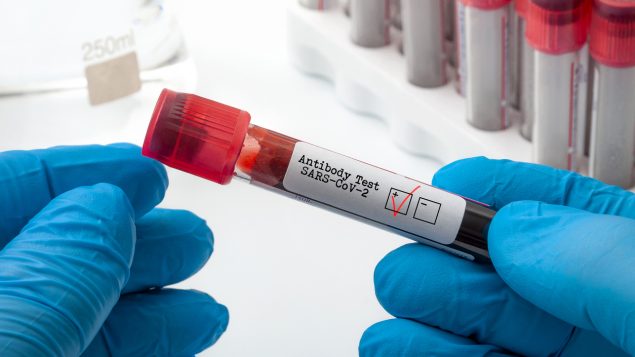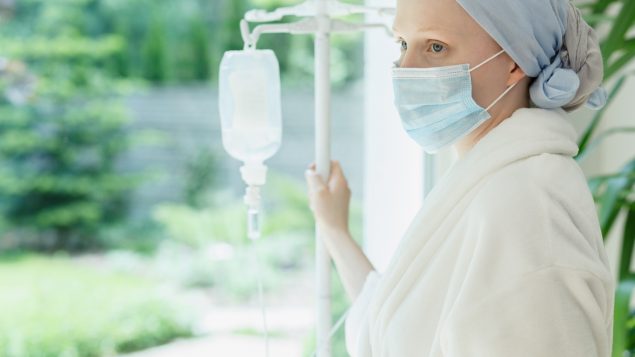Health authorities in Canada have opted to delay giving people their second dose of COVID-19 vaccine in order to inoculate more people with a first dose. Pharmacists say delaying the second vaccine for cancer patients puts THEM at risk. They say cancer patients should have their second dose no more than three weeks after their first.
In early March 2021, Canada’s National Advisory Committee on Immunization (NACI) approved extending the delay between the two shots to four months. Most provinces, which are responsible for inoculation, took the advice.
But the Canadian Association of Pharmacy in Oncology (CAPhO) points to a new U.K. study that shows delaying the second dose greatly reduces the effectiveness of protection from COVID-19.

Blood testes can determine the level of response by antibodies fighting infection. (iStock)
The study found that three weeks after after a first vaccine, 97 per cent of people without cancer had an antibody response protecting them from COVID-19 infection. However, only 39 per cent of people with a solid form of cancer had such a response and only 13 per of people with a blood cancer did.
When the second dose was administered three weeks after the first, immune response at the five-week mark had occurred in 95 per cent of people with solid cancers. Of those who didn’t get the second shot until five weeks after the first, only 43 per cent kept an immune response.
“This demonstrates the urgent need for the NACI to factor in people with solid cancer and blood cancer earlier into phase 2 rollout of the vaccination strategy,” said Tina Crosbie, President of CAPhO. “Further, this study identifies that delaying the second dose for these vulnerable individuals puts them at a greater risk for suboptimal protection.”
Cancer treatments reduce effectiveness of vaccines
CAPhO says cancer treatments have been shown to reduce the effectiveness of vaccines. It notes that the American Society of Hematology recommends that patients with blood cancer should be vaccinated before starting therapies which suppress the immune system. CAPhO says that elderly patients should get their two doses according to the schedule in the product monographs so that they can produce antibodies before chemotherapy blunts that production.
The authors of the U.K. study concluded “Delayed boosting (second dose of vaccine) potentially leaves most solid and haematological cancer patients wholly or partially unprotected, with implications for their own health; their environment and the evolution of VOC (variants of concern) strains. Prompt boosting of solid cancer patients quickly overcomes the poor efficacy of the primary inoculum in solid cancer patients.”
NACI has assured Canadians that it studies all the scientific evidence being produced on COVID-19 on an ongoing basis, and that it modifies its recommendations based on that. It has not yet responded to this recommendation from pharmacists specializing in cancer.







For reasons beyond our control, and for an undetermined period of time, our comment section is now closed. However, our social networks remain open to your contributions.